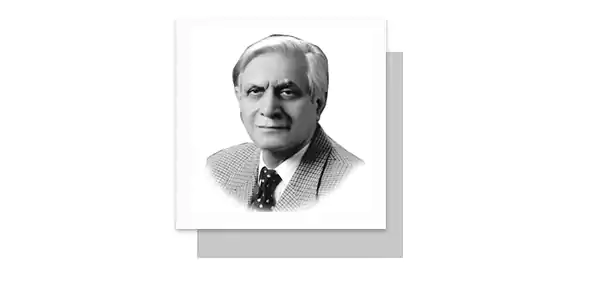Mr. Modi has been sworn in as Prime Minister for the third time, but his dream of a two-thirds majority stands shattered. This is a key point to consider for his future policies. Ajit Doval’s re-appointment as National Security Advisor signals the continuity of existing policies.
In an election rally, Mr. Modi reiterated his position to take back Pakistan-administered Kashmir, in line with the RSS agenda and BJP manifesto. PM Modi always maintained that the BJP government would revoke Article 370 when they came to power. The reality is, he did it. With a favourable geo-strategic scenario, a booming economy and Pakistan’s weakened internal position, India in one stroke revoked Articles 370 and 35-A. Pakistan could not do anything except offer lip service and close the borders for trade and economy. This, I feel, was not an appropriate step. India could not have made this move without the positive nod and connivance of the US, EU and other elements. The India-occupied Kashmiris blame Pakistan for abandoning them. India is very smart in diplomacy and ensured propaganda on multiple mediums.
The dumping is ongoing along the Line of Control. It may also be noted that the Indian Chief of Defense Staff, while speaking at the Indian Defence College, threatened Pakistan by saying that there could be a “black swan event” anytime. What does that mean? Is India planning an adventure against Pakistan-administered Kashmir or sabotage through proxies? Mr. Modi needs to restore his popularity with the electorate and recover lost ground in the elections. Indian threats must not be taken lightly. We ignored such warnings in 1971 and suffered. The message is very loud and clear, especially in the backdrop of the regional and global geostrategic flux, developed on three counts: first, the Chinese and American tensions on various economic and strategic issues; second, Israel’s war against Gaza; third, the Russia-Ukraine conflict. The most important is the political polarization within Pakistan, which could be an invitation for India to take advantage and venture into an adventure.
It has been reported in the Indian media and in international diplomatic circles that Mr. Modi has been in contact with various heads of state to clarify his position and intentions regarding Azad Kashmir. He is trying to get guarantees that in the case of an Indian venture into Azad Kashmir, the world will not react or Pakistan will be restricted in its response. This happened in 1962, 1984, 1990 and during Musharraf’s period when the Indians amassed their forces on Pakistan’s borders. Players come into action to support Indians. Presently, India fits into the US strategic ambit.
India is restructuring its combat commands and readiness to suit the three-dimensional future battlefield in tactical, strategic and celestial domains. Maximum effort is being made in the use of technology to counter China and remove the imbalance. Earlier, the Indian high command adhered to orthodox concepts. This is changing now. The scope of the subject is very wide, but this article is confined to what is happening across the Line of Control. RAW’s activities in other countries, especially Pakistan, are no longer a secret. India has been openly preparing for various actions, using a carrot-and-stick approach, within Indian Kashmir but also for war. Prior to the revocation of Article 370, Indian actions and diplomacy were explicit. The RSS agenda is very clear and was clearly spelled out in the BJP election manifesto.
Pakistan, unfortunately, took it lightly. The damage was done after Article 370 was revoked and Kashmir’s status was altered. Indian leadership will not reverse their decisions unless forced. Diplomacy and politics aside, power grows out of the barrel of a gun. The Line of Actual Control saw the entry of Chinese forces this year, making India jittery despite their claims of being powerful enough to confront China. Diplomacy continues as India knows its limits. On Pakistan’s side, accepting the ceasefire on the Line of Control allowed India to prepare within Kashmir, fence the border, build bunkers, and settle retired Indian Army personnel.
A complete blackout of communication is in place within Kashmir to ensure that the Kashmiris’ voice is not heard. On the Pakistan side, unfortunately, we are victims of political polarization and economic stagnation, which India is exploiting. In Afghanistan, the rebellion of the Khorasani Group against the Afghan Taliban government and deploying their men on the Pakistan border is part of the Indian strategic plan. The situation is going to worsen as Indian activities in Iran have increased, especially with the death of the Iranian President and Foreign Minister in a helicopter crash, which opened a new Pandora’s Box. India is a proxy of Israel and a strategic partner of the United States. Their involvement cannot be ruled out. In intelligence parlance, the least suspected is often the most probable. Therefore, a full investigation will eventually reveal the facts. In this fluid strategic milieu, one must not underestimate the intentions of the Indians. The BJP not getting an absolute majority signals a dangerous situation for Pakistan. Mr. Modi will try to regain lost ground. The fledgling popularity of the Modi government could be restored with a false flag or a proper attack on Azad Kashmir. A full-scale propaganda campaign is being launched on the situation in AJK which is being exploited by vested interests to fulfil the climate of fifth-generation warfare against Pakistan. Denial of basic facilities creates a vacuum, inviting subversive elements to step in.
The author is Gallantry Decorated Brigadier Rtd, a researcher in the fields of strategy and international affairs with over sixty years active combat and corporate experience.
—The writer is a senior researcher and analyst. He regularly contributes to the national press.
Email: [email protected]










